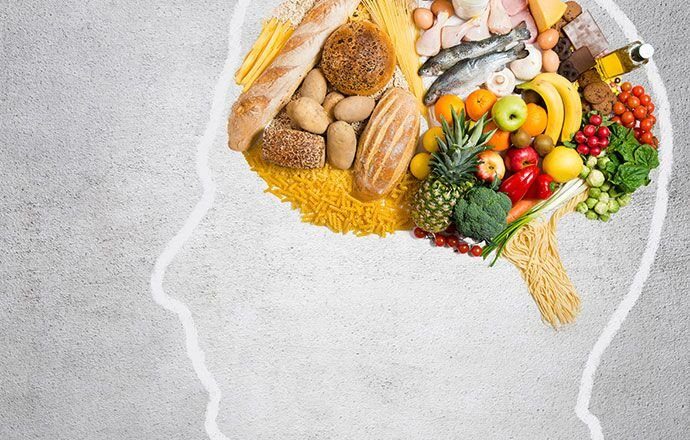The Brain Food Diet – foods to nourish your grey matter. Eating a diet rich in fruit and veg, nuts seeds and omega 3 oils can help protect your brain as you age.
It’s a scary fact that from early adulthood the number of brain cells we have starts to decline. In fact, we can lose up to 60% of certain types of brain cells as we age. We are living longer and chronic diseases such as Alzheimer’s and other forms of dementia are becoming more common, but what can we do to help protect ourselves against the risk?
Unhealthy habits such as smoking and drinking too much alcohol can increase our rate of brain cell loss. Taking regular exercise and having an active social life however can help, so find a friend and get on your bike or out on the tennis courts.
Fuel for your thoughts
There are always stories of the ‘super’ food that can cures all ills, but does it really exist? As always, it is not quite that easy, but there are a number of foods that have the edge in keeping the brain ticking over nicely
Your brain needs energy in the form of glucose to work at its’ best. A regular intake of wholegrain carbohydrates such as brown rice, pasta or wholemeal bread can provide energy whilst keeping your blood sugar levels steady.
‘The Med’ for your head
It is well reported that a Mediterranean diet is good for your heart, but did you know it is also good for your head?
Diets rich in vegetables, fruits, wholegrains and fish have been linked to better cognitive function and can reduce the risk of Alzheimer’s and dementia.
Lycopene, an antioxidant found in tomatoes, can prevent damage to brain cells caused by free radicals. It is most effective when tomatoes have been cooked and are eaten with a little fat such as olive oil. Add a few sardines to your tomato pasta sauce, and you’ll be doing your brain even more favours.
Oily fish such as salmon, trout and pilchards contain the Omega 3 fatty acids DHA and EPA. Low DHA levels can increase the risk of brain tissues breaking down and losing structure
It is well reported that a Mediterranean diet is good for your heart, but did you know it is also good for your head?
Walnuts and other nuts and seeds such as chia and flax contain ALA that can be converted to DHA in the body. Trials in the U.S have shown that eating walnuts may help improve test scores for memory recall and reaction time.
Keep it colourful
Eating in a Mediterranean style diet means incorporating a wide range of colourful fruit and veg in your diet. Dark red and purple fruits contain anthrocyanins, which may help in delaying or improving short-term memory loss. Fruits high in Vitamin C12 such as blackcurrants, and compounds called glucosinolates found in broccoli and other vegetables of the Brassica family, can also
be neuroprotective.
High levels of homocysteine, (originally associated with increased stroke risk), have also been shown to slow the loss of brain function. A good intake of vitamins B6, B12 and folic acid, from foods such as fish, chicken, eggs and leafy greens can help control homocysteine levels. Many of these foods are also rich in Vitamin E, which trials suggest is important in maintaining normal
memory.
So as the Autumn days draw in, get inspired by the fading sun to create your own Indian summer with a diet inspired by Mediterranean holidays. In your latter years, your grey matter will thank you for it!
Sarah Bernard is a Registered Nutritionist with the Association for Nutrition. She runs her own freelance Nutrition Consultancy, Pistachio, which provides individual consultations for private clients in weight management, personal wellbeing, healthy pregnancy and weaning.
www.pistachionutrition.co.uk










